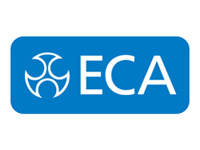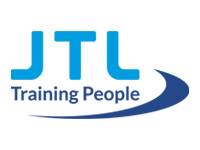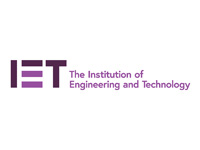The JIB relaunched its Apprentice Exchange Programme last year after it was suspended in 2020 following the outbreak of Covid. After receiving dozens of entries, the JIB announced Matthew Pickering of NG Bailey, as the winner. Matthew will spend six weeks living and working as an electrician in Brisbane, Australia. Commenting on the good news, Matthew said: “I started the qualification to become a competent electrician after working with and meeting others whom I admired. I had no idea that it would open doors like this for my career and personal progression. It’s an opportunity of a lifetime and one I’m very much looking forward to.”
As part of the trip Matthew will also visit the contractors’ association, union and leading training providers to get a better understanding of how the industry works and compile a report on his experiences of the electrical industry in Queensland, Australia.
Matthew took up an electrical apprenticeship having enjoyed the blend of electrical and mechanical engineering in his previous job as a technical support manager for an espresso machine importer. He explained: “Although I felt I was a good technician, whenever I came into contact with other formally trained electrical engineers or electricians who had transitioned into working with vending equipment and espresso machines – I was always impressed at their breadth of knowledge in the field.”
He continued: “Over time I began to realise my limitations in the role. I knew I missed key fundamentals and I wanted to rectify this. Despite the fact that I was going to have to leave an established career to retrain, I knew an apprenticeship would be the best route to take as a range of experience was guaranteed by the programme.”
Upon realising he wanted to broaden his base competence, Matthew completed a Level 2 Diploma in Electrical Installations before beginning his apprenticeship. He said: “As time went on, I felt that I wanted to have the level of understanding I saw amongst my more formally trained peers. I saw the strengths of a complete apprenticeship, benefiting others both theoretically and practically. I started working towards the end goal of a complete apprenticeship by starting the Level 2 qualification.”
Worth the wait
Matthew was living in London with his partner and he knew that he would have to save money to supplement his income. He started to save in late 2017 in order to build a large enough buffer, knowing that when the right employer came around he would be ready to make the move, and in 2019 he was finally offered a role. Matthew said it was worth the wait: “I had been applying for around 12 months before the opportunity came through. It had been frustrating but I stayed the course and I’m glad I did. It was the best job move I’ve ever made.”
He continued: “There are different routes to gain competence and the requisite qualifications, but there is no comparison to the quality of experience I would gain from a complete trade apprenticeship. I am lucky to have found an employer like NG Bailey who have not only supported me throughout every step of my apprenticeship, but are also fully behind me encouraging me to apply for opportunities such as the JIB Apprentice Exchange Programme.”
Funding for the Apprentice Exchange Programme is provided by the JIB Skills Development Fund, which will cover the cost of flights, accommodation, wages and associated costs. The JIB Skills Development Fund provides financial assistance for courses for those undertaking further education and training in the electrical industry. JIB member companies can benefit from grants towards training their workforce, upskilling, helping to make their business more competitive and enter new and emerging markets.
Outstanding work ethic
In his application, Matthew also received a strong endorsement from his employer, who was particularly impressed with his outstanding work ethic, maturity, and determination to succeed. Karon van der Heiden, Apprenticeship Development Partner at NG Bailey, said: “Matthew’s goal has been to complete his apprenticeship to the highest standard, keeping himself accountable for progression. Throughout his apprenticeship Matthew has been keen to absorb knowledge from the more experienced electricians on site, never afraid to ask questions, to be challenged and stretched to better his technical skills and knowledge.
Matthew gives back using his experience to mentor the younger apprentices, although still an apprentice himself he is someone the other apprentices look up to and go to for advice. Credit also goes to Oana Apostol who worked closely with Matthew as his Workforce Manager.”
Matthew’s desire to make a positive difference outside his job was something that caught the judging panel’s eye; in particular his work with a North London charity helping to combat loneliness among older community members across Camden and Islington. He explained: “I was part of a local support network for vulnerable and isolated members of the community who were shielding. During the pandemic I was paired with an elderly friend who I’d met through the charity before the pandemic. We became good friends, offering each other an ear and sharing stories. I’d talk to her weekly, and during the quieter months when she felt safer, we’d meet up and eat together. I learned a lot about her life, and I learned a lot about myself in the process.”
Heading Down Under
Looking ahead to his trip, Matthew is keen to learn more about some of the trade’s work practices Down Under, and he already believes the UK could benefit from adopting some of Australia’s regulations in the electrotechnical sector, such as making “Electrician” a protected job title. He said: “There are around 117 protected job titles but this doesn’t apply to those performing electrical work. Customers in the domestic market are most susceptible to this particular problem as there are no competency cards required to enter the home and perform electrical work. ECS and CSCS cards are at least a means of qualifying skilled tradespersons before entering commercial sites, but there are limited penalties for not holding a card and doing electrical work for financial gain.
“The UK market would do well to adopt a scheme of licensing and fines for practising without a license such as that seen in Australia. This protects the public as well as the hard working tradespeople who’ve honed their craft and worked to attain their qualifications.”
Matthew concluded: “I’m very much looking forward to seeing how our Australian counterparts train and maintain standards amongst the working electricians. There will no doubt be lots of cultural similarities so it will be interesting to see how we compare. It’s an opportunity of a lifetime and I’m excited to make the most of it.”
Keep an eye on the JIB website and social media channels to follow Matthew’s Brisbane Diary.






